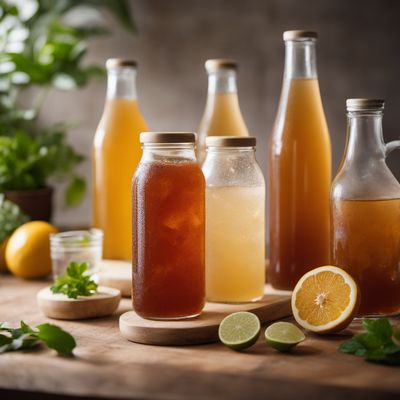
Ingredient
Functional drinks
The Power of Functional Beverages
Functional drinks come in a wide range of flavors and formulations, catering to different health needs and preferences. They can be carbonated or non-carbonated and may contain ingredients like vitamins, minerals, antioxidants, probiotics, or herbal extracts. These beverages are often marketed as promoting energy, immunity, digestion, or overall wellness. The taste, texture, and appearance of functional drinks vary depending on the specific formulation and ingredients used.
Origins and history
Functional drinks have gained popularity in recent years as people become more health-conscious and seek convenient ways to incorporate beneficial nutrients into their daily routines. The concept of functional beverages can be traced back to traditional herbal remedies and tonics used in various cultures. Today, functional drinks are widely available in supermarkets, health food stores, and online retailers, offering a convenient and enjoyable way to support specific health goals.
Nutritional information
Functional drinks can provide a range of nutritional benefits depending on their formulation. They may contain vitamins, minerals, antioxidants, or herbal extracts that support various aspects of health and well-being. However, it is important to read the labels and choose functional drinks that align with individual dietary needs and preferences.
Allergens
Functional drinks may contain allergens such as milk, soy, nuts, or gluten, depending on the specific formulation. It is essential to check the ingredient list and allergen information provided on the packaging to ensure compatibility with dietary restrictions or allergies.
How to select
When selecting functional drinks, consider the specific health benefits or ingredients you are looking for. Read the labels carefully to understand the nutritional content and any potential allergens. Look for reputable brands that prioritize quality and transparency in their formulations. It is also advisable to consult with a healthcare professional or registered dietitian to determine the most suitable functional drinks for individual needs.
Storage recommendations
To maintain the freshness and quality of functional drinks, follow the storage instructions provided on the packaging. Most functional drinks are best stored in a cool, dry place away from direct sunlight. Some may require refrigeration after opening to preserve their taste and nutritional integrity. It is important to check the expiration dates and consume the drinks within the recommended timeframe for optimal quality.
How to produce
Functional drinks are typically produced by beverage companies or manufacturers with specialized formulations and production processes. As an amateur, it is not feasible to produce functional drinks at home due to the complexity and specific equipment required. However, one can experiment with homemade infused waters or herbal teas using natural ingredients to enjoy some of the benefits of functional beverages.
Preparation tips
Functional drinks can be consumed as standalone beverages or incorporated into various recipes and preparations. They can be enjoyed chilled or at room temperature, depending on personal preference. Functional drinks can be used as a base for smoothies, mocktails, or cocktails to add flavor and nutritional value. They can also be consumed before or after workouts as a convenient way to replenish fluids and nutrients.
Culinary uses
Functional drinks have a wide range of culinary uses and applications. They can be consumed as refreshing beverages on their own or used as a base for smoothies, mocktails, or cocktails. Functional drinks can also be incorporated into recipes for soups, sauces, marinades, or dressings to enhance flavor and nutritional content. They offer a convenient way to add extra nutrients and health benefits to various dishes and preparations.
Availability
Functional drinks are commonly available in supermarkets, health food stores, and online retailers worldwide. They are particularly popular in countries with health-conscious populations and a growing interest in wellness trends.

